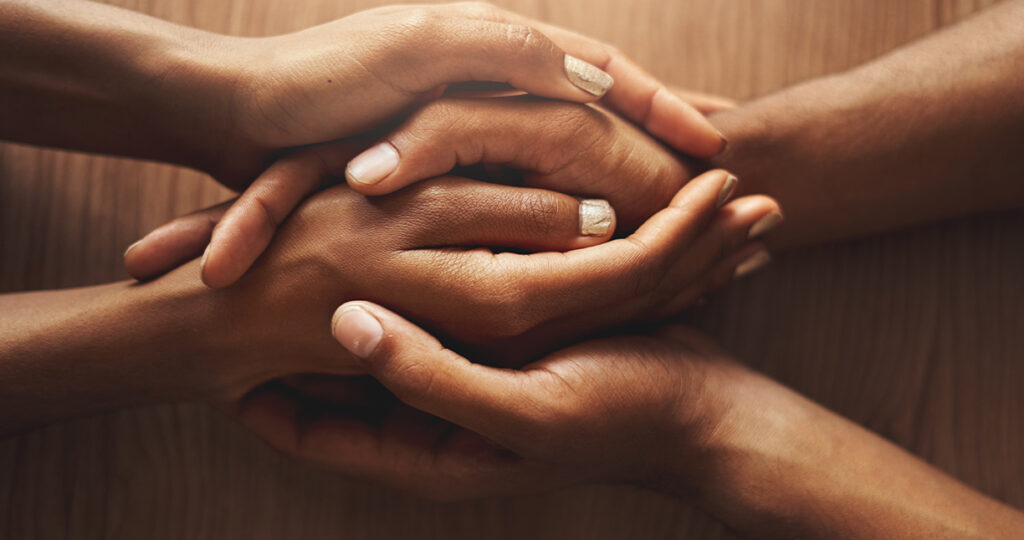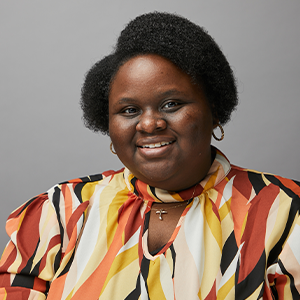Remembering The Lives and Legacies of Jessica Edwards, Alyssiah Wiley, and Victims of Domestic Violence: Part II

Over the past years, Connecticut has worked toward making their crucial domestic violence resources and services more accessible for Black women and women of color.
Dr. Danielle Moye (LMFT), who holds a doctorate in Family Therapy, founded Harmony Cove Therapy, LLC., in East Windsor, CT, a service that has allowed her to work with survivors of intimate partner violence. She talks about some of the mental health symptoms that her clients have dealt with.
“As a therapist, I have had the opportunity to work with women who survived intimate partner violence. Due to the severity of emotional distress, there are several mental health symptoms that women may experience. Some of these are anxiety, depression, anger, fear, and even shame. The women in these situations often times have been separated from their support system or have been isolated in some way,” Dr. Moye said.
Moye also talked about how therapy can play a vital role in the healing process for survivors of intimate partner violence.
“One of the most challenging aspects of navigating the space of intimate partner violence (IPV) is identifying and utilizing help,” Dr. Moye said. “Engaging in therapy can really help women feel heard, understood, and supported. Therapy is an important component of the healing process because it equips you with tools for shifting forward.”
Interval House, one of the largest agencies committed to eradicating cycles of domestic violence, serves “24 towns and cities, both in the East and West of the Connecticut River” and is a shining example of the need to make social services culturally component & equipped to work with communities of color. President Mary-Jane Foster shared the following about the steps that this organization is taking.
“About 74% of the staff are women of color. All of us are trained, which is not to say that all of us are equally culturally competent. We work on that every day,” Foster said. “We have a specialized program for immigrants called ‘Hope Beyond Fear’ and we have specially trained advocates who work not only with Latinas, but immigrants from Africa, South Asia and the Middle East. Very often, when immigrant women are being abused, they think it is part of their responsibility, not something that shouldn’t be happening to them.”
Foster continued to talk about the services that Interval House offers for victims of domestic violence, including support groups, a 24/7 hotline, court advocates and safe shelter locations, including hotels where their advocates meet with survivors and continue their critical work with them.
“Many people associate a hotline with crisis, [but] we also get a tremendous number of calls asking for advice. [It is shocking] the number of victims who don’t understand that they are in an abusive relationship,” Foster said.
One of the most important aspects that survivors of abuse need to prioritize is the creation of a safety plan, Foster said, one that dynamically allows them to challenge cycles of abuse.
“What might keep you safe at eight o’clock in the morning may not be good by noon or by that night or the next morning,” Foster said. “We work with victims and survivors on how to make a plan to stay safe or a plan on how to leave.”
Another organization that is “standing in solidarity with communities of color” is the Connecticut Coalition Against Domestic Violence (CCDV). Tonya Johnson, Vice President of Operations, talked about the role of the CCDV within Connecticut.
“CCDV is comprised of 18 domestic violence provider agencies [located] throughout Connecticut. Every provider essentially has a catchment, and the entire state is covered,” Johnson said. “Our providers offer counseling services and crisis intervention through our hotline and advocacy within various systems, whether it’s with law enforcement or child welfare. We also offer emergency shelter assistance with rapid rehousing, as well as transitional living services. You can think of it as the step after being emergency shelter for people who just need a little more time.”
Another specific program that is dedicated to survivors, victims and their families is Safe Connect.; Maria Guzman, Director of Safe Connect, talked more about this program.
“In November of 2019, we launched CT Safe Connect. We have streamlined all of our hotlines throughout the state of Connecticut to one centralized location hub and hired a team of advocacy coordinators who are dedicated to fully assessing any caller’s needs,” Guzman said.
Guzman also emphasized that CT Safe Connect is client-centered, ensuring they partner with their clients and connect them to a variety of resources, in addition to assisting them with domestic violence issues.
“We’re here to listen to determine what their needs are, their priorities are, and really figure what that next best step is for them and along with them,” said Guzman. “[We] hope that they will feel comfortable to engage longer term services with our one of our 18 domestic violence member organizations, and provide them with any other resources, information about other community-based providers, who might be able to meet their needs in terms of food, clothing, transportation, access, childcare, [and] really any wraparound needs.
“Oftentimes, folks are [not] coming to us with domestic violence being their first concern, their top priority. There are a lot of other needs that they’re more concerned with having met right away, so that then they can maybe focus on the domestic violence after those things are settled. So, we are fully kind of triaging that call, helping that victim prioritize their needs, and ultimately making that warm handoff to one of our member organizations,” added Guzman.
Regarding inclusivity and becoming more welcoming to communities of color, Guzman shares how the CT Safe Connect program is engaging with this initiative.
“Within Safe Connect, we really focus on making sure that our safety planning with the individual is very victim-defined, understanding that folks, especially from communities of color, are not necessarily always trusting of mainstream brick-and-mortar service providers, like we are. So, we make sure that we are building that trust, understanding what their fears [and] concerns are,” explained Guzman.
“They may not be comfortable reaching out to law enforcement for intervention [or] support, and that’s okay. So, we really make sure that we’re able to safety plan around those things and that they understand that everything they share with us is completely confidential, outside of those few things that we are mandated to report.”
CCDV is committed to having diverse staff within their agency and uniting with community partners throughout the state who have established that trust within this population. Guzman shared more about this process:
“At Safe Connect, we have a really diverse staff. We have staff from over 10 countries, five continents, over 10 languages represented, but we’re still not going to be able to represent everybody in our communities. It comes down to really understanding that individual person and not making any assumptions about what it is they need or what’s best for them. Our partnerships in the community are hugely important, so we make sure that the grassroots organizations, the folks that are doing work with immigrant communities, know that we’re here and that we have resources.”
Vice President Tonya Johnson also wanted to make it clear to citizens that it does not matter whether you go directly to them or other community organizations, they will work with you wherever you feel comfortable.
“The most important thing to note is that you don’t have to walk through our doors, but that whatever door you do walk will have information to provide you. CCDV will go where you are,” said Johnson. “If you’re seeing somebody in the community, then have that community agency call. And we will gladly offer help and support and get them whatever they need for even if they never walk through our door.”
Lastly, Guzman wanted to clarify that although CCDV partners with other mainstream service providers, such as law enforcement and child protective services, they are not directly linked to them.
“We are not directly connected, so all of our services are completely free, voluntary, and confidential. You don’t even need to provide any personal information when reaching out. If you want to be completely anonymous, you can. The only thing we need in order to connect you with services, is a name and a way to stay in contact with you,” said Guzman.
It’s all about understanding what the person’s priorities are, what their fears are, what they’re most worried about in the moment, and working around it. That’s going to look different for every single individual depending on who they are, what community they come from, and their history.”
This is the second article in a three-part installment focused on the intersection of gendered violence & communities of color. Be sure to check back into Better Manchester for the remainder of the series.

Remembering The Lives and Legacies of Jessica Edwards, Alyssiah Wiley, and Victims of Domestic Violence: Part I
This is the first article in a three-part installment focused on the intersection of gendered violence & communities of color. Be sure to check back into Better Manchester for the remainder of the series.

Remembering The Lives and Legacies of Jessica Edwards, Alyssiah Wiley, and Victims of Domestic Violence: Part III
This is the third and final article in a three-part installment focused on the intersection of gendered violence & communities of color.
Like this article?
Leave a comment
About Author

Deidre Montague is a Native of Bloomfield, Connecticut. She is a 2014 alumni of Eastern Connecticut State University with a B.A. in English and a 2016 alumni of Simmons College, in Boston MA with a Masters degree in Social Work. After making the difficult choice to leave the field of Social Work, after being laid off from her case management position in a local non-profit for the second time, she decided to tap back into her love for writing, by attending Manchester Community College and registering in the Communications program with a concentration in Journalism, which she completed in May 2022. Her work has also been featured in other publications such as Northend Agents, Better Manchester Magazine, Journal Inquirer, Essence Girls United, Blavity, and CT Public. Currently, she is the Race/Social Justice and Community reporter for The Hartford Courant.
Fun Fact #1 I sing on my Church’s Praise and Worship Team.
Fun Fact #2 I am a big Abbott Elementary Fan. #Janine&Gregory4Ever
